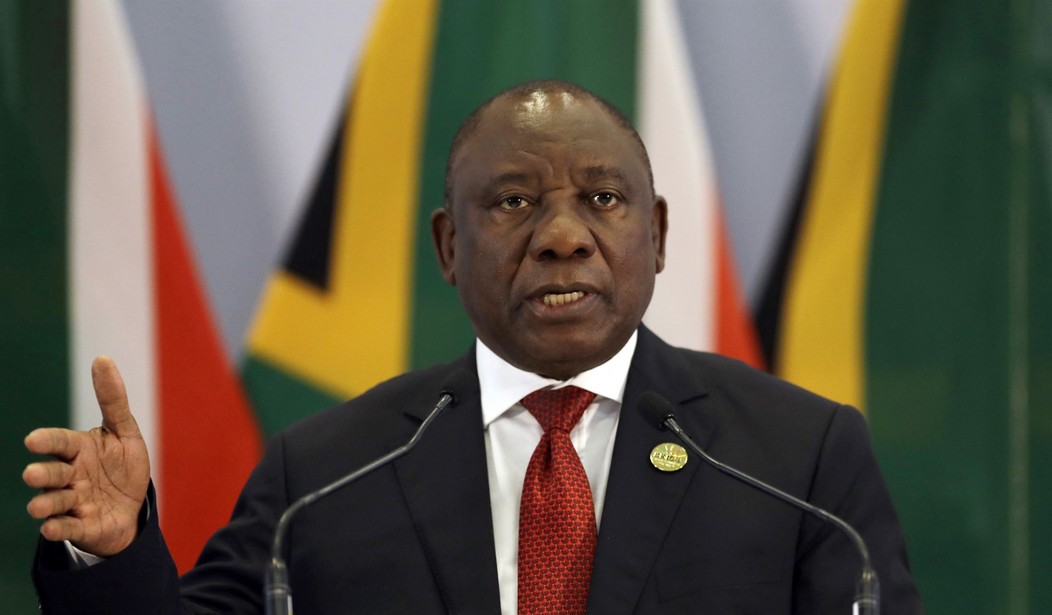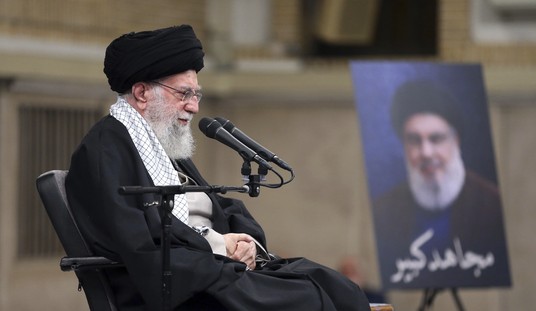It has been quite a season for the Republic of South Africa’s diplomatic corps.
In late August, President Cyril Ramaphosa hosted the historic 15th annual BRICS summit, at which the five-member group [Brazil, Russia, India, China, and South Africa] voted to invite Argentina, Egypt, Ethiopia, Saudi Arabia, and the United Arab Emirates into membership. [Newly elected Argentine President Milei has stated his intention to decline the offer.]
Less than three months later, diplomats came out to welcome principals and other participants at the 20th annual U.S.-Sub-Saharan Africa Trade and Economic Cooperation (AGOA) Forum in Johannesburg. With AGOA expiring in September 2025, the theme of “partnering to build a resilient, sustainable, and inclusive AGOA to support economic development, industrialization, and quality job creation” took on additional importance.
China, Russia, India, and the United States all came to President Ramaphosa in Johannesburg, each with different, perhaps irreconcilable, goals – and pitfalls for the host nation which has a vested interest in staying in both camps.
While BRICS was initially a medium for highlighting investment opportunities, since South Africa joined in 2010 the group has morphed into a more cohesive geopolitical bloc. Adding new members was lauded by President Ramaphosa, who stated that “an expanded BRICS will represent a diverse group of nations with different political systems that share a common desire to have a more balanced global order.”
The founding members of BRICS by 2016 had pooled $100 billion of foreign currency to form the New Development Bank, a World Bank-inspired institution that has approved more than $32 billion of loans for water, transport, and other infrastructure projects. South Africa borrowed $1 billion from the bank to fight the Covid-19 pandemic.
Recommended
While some nations have pushed for a BRICS currency, India has vetoed that idea for the moment. Still, trade between bloc members has surged by 56 percent to $422 billion over the past five years, notably as Brazil and Russia have sent natural resources and farm products to feed growing Chinese demand.
When Russia invaded Ukraine in 2022, the New Development Bank froze Russian projects and denied Moscow access to the BRICS shared foreign currency system. The four nations likely prioritized ongoing access to the dollar-based financial system over helping Russia and thus opted to avoid U.S. sanctions.
Earlier this year, President Ramaphosa and several other African heads of state, traveling as the African Peace Initiative, met with Russian and Ukrainian leaders in an effort to prevent further disruptions in grain shipments badly needed by African nations otherwise facing drastic food shortages.
While the effort did not achieve its goals, Ramaphosa hailed as historic “the first time African leaders have embarked on a peace mission” beyond the continent. South African industrialist Ivor Ichikovitz called the Initiative “an inflection point for the continent,” showing that “Africa can take charge of its own destiny, despite the incredible international pressure placed upon its leaders to take sides.”
But therein lies the problem for President Ramaphosa and South Africa. As noted by the nonpartisan Wilson Center, there is an ongoing debate in the U.S. over South Africa’s compliance with the eligibility criteria for preferential trade benefits under AGOA, one that revolves around two sets of concerns – barriers to U.S. trade and actions that undermine U.S. national security and foreign policy interests.
Sen. Chris Coons (D-DE) has proposed a mandatory out-of-cycle review of South Africa’s eligibility compliance, and that has generated what is described as “a high risk of misinformation and disinformation … on the U.S. legislative efforts to extend AGOA and exercise more oversight on South Africa.”
The socialist Peoples Dispatch noted that Sen. Coons, Sen. James Risch (R-ID), and other U.S lawmakers had urged the Biden Administration not to hold the AGOA Forum in South Africa, citing intelligence that South Africa had supplied arms to Russia. Writer Tanupriya Singh claimed that “not only is AGOA blatantly manipulated as a tool of U.S. foreign policy, the program’s terms itself do little to advance the developmental concerns of its supposed beneficiaries.”
But President Ramaphosa, whose nation has been AGOA’s biggest beneficiary, has called AGOA “an important instrument for growing and transforming our economy. The benefits of AGOA are felt in the lives of our people through increased economic activity and the jobs that such activity created.” Indeed, South Africa was “the largest destination for U.S. foreign direct investment among AGOA eligible countries,” he added.
In his view, “AGOA enhances the diversification of African economies, enabling them to export value-added products.” This in turn incentivizes African countries to develop and export these goods and services, reducing the continent’s dependence on primary commodities and enhancing its ability to participate in global value chains.
The technical assistance supplied via AGOA also enables African businesses to enhance skills, knowledge, and infrastructure to meet international standards. In short, Ramaphosa sees the value of both AGOA’s reauthorization and keeping South Africa eligible for its benefits.
The USDA’s Foreign Agricultural Service cites as major benefits of AGOA for South African agriculture the fact that two-thirds of the nation’s agricultural exports to the U.S. are now tariff-free, and that these exports have totaled over US$7 billion since 2000. The South African auto industry is the largest beneficiary of AGOA’s engagement.
It is easy, then, to see that President Ramaphosa is in a tough space trying to balance his nation’s vital alliances with the BRICS nations and the U.S. at the same time. Moreover, Ramaphosa’s African National Congress party is facing perhaps its greatest challenge in 2024’s national elections. Critics point to daily blackouts often caused by ailing coal-fired power plants that routinely break down. The state-owned utility that produces 90 percent of the nation’s electricity has debts approaching US$20 billion, and the outages are affecting businesses and households already suffering from pandemic-induced inflation.
In the 2019 elections the ANC only garnered 57 percent of the vote – its lowest share ever. This weakness has emboldened opposition parties, some of whom may be less interested in straddling between East and West while seeking to maintain the integrity of independence or neutrality in matters not directly of national concern.
Could a U.S. move to deprive South Africa of AGOA’s benefits foster a further downward spiral in the South African economy? Does the U.S. want to risk further destabilization of the largest economy in sub-Saharan Africa and a major U.S. trading partner?
Some in Congress are demanding that South Africa’s stance in the Israel-Hamas conflict justifies a cutoff of eligibility. But as the AGOA website itself suggests, cutting off South Africa makes little real-world sense.
The U.S., they noted, has the largest African diaspora, close-knitted business, educational, and cultural links with African countries. Cutting off the largest AGOA trading partner could well be seen as a slap in the face to hard-fought African independence and self-determination.
African nations are urging a quick, 10-year renewal of AGOA, while Secretary of State Antony Blinken talks about working with Congress to make it “better.” Special Assistant on Africa Judd Devermont agrees that “the absence of AGOA legislation would be deeply troubling for African economies,” while also suggesting that reforms might be needed.
Ramaphosa sees extending AGOA for a “sufficiently lengthy period” as an incentive for investors to build factories in his nation. That kind of speaking up for Africa – and South Africa in particular – is an example of Africa “finding its voice and using it.”
Duggan Flanakin is a senior policy analyst at the Committee For A Constructive Tomorrow who writes on a wide variety of public policy issues.

























Join the conversation as a VIP Member